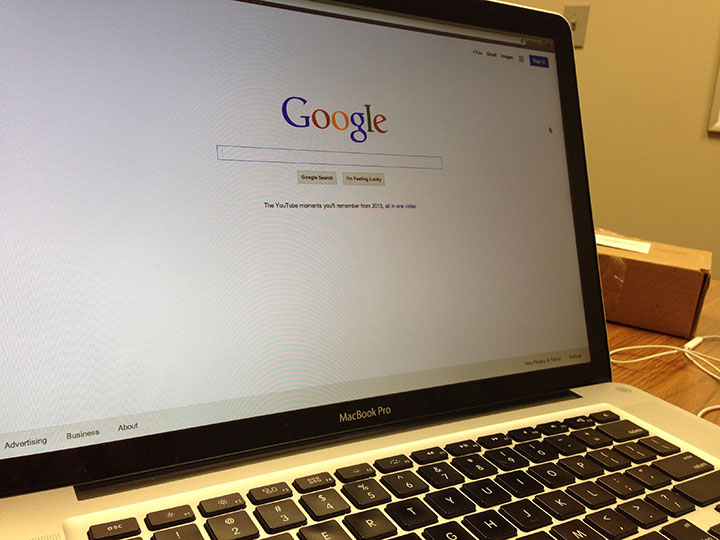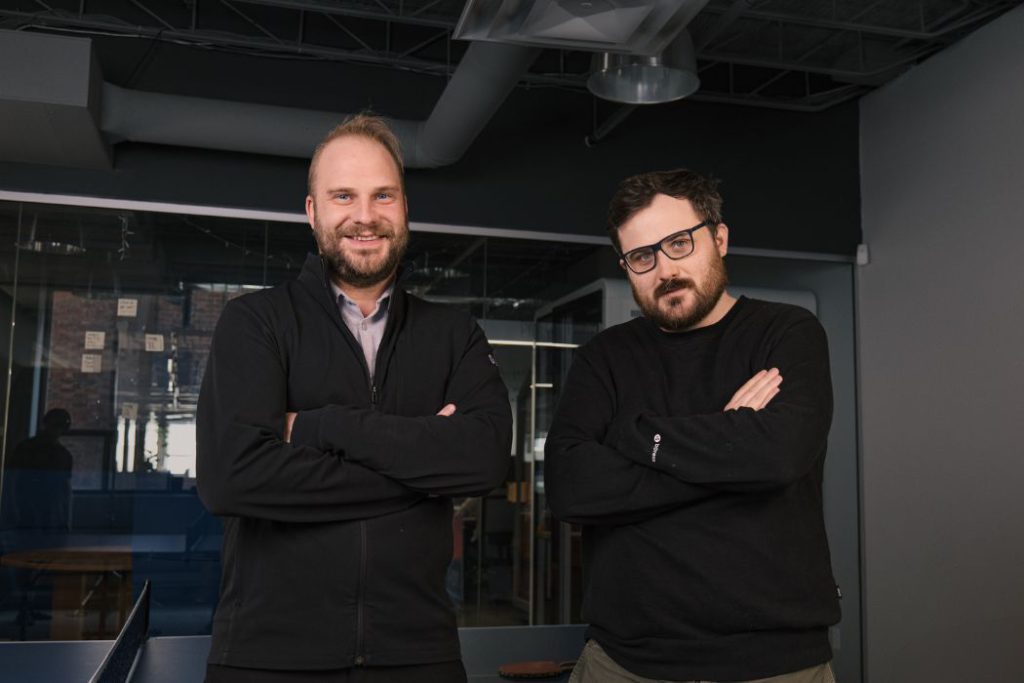(Part 1 of a 3 Part Series)  by Brad Urani There’s a misconception commonly held by the less technical among us that Internet marketing is somehow easier than traditional marketing. Intuitively it makes sense: no paper need be printed, billboards erected, nor commercials filmed. Placing ads on Google is point-and-click easy, and when someone searches for whatever you’re selling, they should easily be able to find you. In the new economy, everyone is just a click away from their customers. I wish it were that easy. Efficient Markets Are Brutally Efficient Pop quiz: how many websites appear in the number one spot for a given search term? Trick question. Just one. Can you guess how big the advantage is? Number one gets 83% more clicks than #2 and nearly 200% more clicks than #3. Because ecommerce is a $1,000,000,000,000 market (that’s one trillion) driven mostly by search engines, it should be no surprise that search engine marketing (SEM) is the most sophisticated and competitive form of marketing on planet earth. Considering that Google owns 66.7% of search traffic, the focus narrows to reveal that the big G is matter-of-factly the most powerful company that has ever existed, its algorithms being the sole arbiter of a massive chunk of the world’s economy. Given the power they yield, Google actually does a tremendously laudable job of being fair. They have made a science out of identifying the best content – be it journalism, how-to videos, or great prices on goods and services – and pushing it to the top. The problem is that small businesses can rarely offer better content – be it journalism, how-to videos, or great prices on goods and services – than their bigger competitors. Until last year it was possible for small companies – through difficult but effective search engine optimization (SEO) tactics – to lay claim to certain keywords and stake out territory in the search engine results pages. This allowed small retailers and content providers to grow in the face of daunting monopolistic competition. My former employer built a very successful business in a fiercely competitive market this way. Now, SEO is basically dead, which means the one avenue through which the little guys could gain ground on the giants has vanished (look for more about SEO in my next post). Pay-per-Click advertising (PPC) is the obvious alternative, but that too is insanely competitive. The nature of it is that virtually no highly-trafficked keywords can be targeted at anything better than break-even (more on that coming soon). It’s also maddeningly difficult to determine if your PPC campaign is profitable or not. That means that there’s not much small businesses can do to get ahead that’s not hugely expensive and risky. Build a community around your Facebook page? Maybe if you sell skateboards, but not if you sell cubicles. Bet the farm making YouTube videos to turn your website into a community hub just to divert some of the traffic to your retail business? That might work, but probably not, and you won’t know until you try. If it doesn’t work, you’d better have deep pockets, or you might not survive to try again. Natural Monopolies The truth is that Internet commerce – whether physical products, physical or virtual services, or information (like this site) – inherently pools into monopolies. Unlike the bad old days of Microsoft or Standard Oil though, these monopolies actually benefit consumers. Never have prices been cheaper, service been better, or journalism been more informative. At the same time, never has that money flowed to such a small number of companies. The economics are simple: the bigger you are, the more money you can spend so you can offer people exactly what they want. And since Google’s self-stated goal is to help people find exactly what they want… well, you can fill in the rest. I don’t know what the solution to this conundrum is, or if it’s even a problem, but I don’t see it changing soon because virtually no one is complaining. You can find people griping online about Google being unfair, but only from the small businesses who can’t figure out how to break through, and the people who used to make their living doing SEO. The consumers, overwhelmingly, are happy. Unless your business is really truly unique and creative, most folks would rather just shop with the big boys and be done with it. That goes for media too. There are more sources of news than ever, but the number that actually make any money is plummeting. Local Monopolies Profoundly, this phenomenon has spread to local search and is fundamentally altering the landscape of small business. Only one company can be number one for “St. Louis Worker’s Compensation Attorney,” and I can guarantee that the companies who rank well for such terms spend fortunes on SEM, if not in money, then certainly in time. Smaller firms with meager budgets don’t have alternative channels online through which they can siphon off customers, even if they do a better job. Since more and more shopping for services such as doctors, attorneys, car repair, plumbing is being done exclusively online, the clicks are concentrating on the pages of the entrenched. Unlike the global super-behemoth that shows up when you search for “buy new TV” however, that company at the top of your local search is not necessarily the best, rather it is merely the most popular. By and large, small businesses face a daunting hurdle trying to get a leg up on entrenched competitors in search. To be a lawyer, plumber or journalist, do you also have to be an expert in statistical keyword targeting? One would hope not, because it’s too much to ask. Also the tactics that work, if there are any, change so quickly that it becomes a full-time job trying to keep up. The result is that despite the death of SEO, there’s still a thriving industry of SEO “experts” willing to sell you services with mysterious inner workings because they know you have no other choice. But that’s the topic of my next post.
by Brad Urani There’s a misconception commonly held by the less technical among us that Internet marketing is somehow easier than traditional marketing. Intuitively it makes sense: no paper need be printed, billboards erected, nor commercials filmed. Placing ads on Google is point-and-click easy, and when someone searches for whatever you’re selling, they should easily be able to find you. In the new economy, everyone is just a click away from their customers. I wish it were that easy. Efficient Markets Are Brutally Efficient Pop quiz: how many websites appear in the number one spot for a given search term? Trick question. Just one. Can you guess how big the advantage is? Number one gets 83% more clicks than #2 and nearly 200% more clicks than #3. Because ecommerce is a $1,000,000,000,000 market (that’s one trillion) driven mostly by search engines, it should be no surprise that search engine marketing (SEM) is the most sophisticated and competitive form of marketing on planet earth. Considering that Google owns 66.7% of search traffic, the focus narrows to reveal that the big G is matter-of-factly the most powerful company that has ever existed, its algorithms being the sole arbiter of a massive chunk of the world’s economy. Given the power they yield, Google actually does a tremendously laudable job of being fair. They have made a science out of identifying the best content – be it journalism, how-to videos, or great prices on goods and services – and pushing it to the top. The problem is that small businesses can rarely offer better content – be it journalism, how-to videos, or great prices on goods and services – than their bigger competitors. Until last year it was possible for small companies – through difficult but effective search engine optimization (SEO) tactics – to lay claim to certain keywords and stake out territory in the search engine results pages. This allowed small retailers and content providers to grow in the face of daunting monopolistic competition. My former employer built a very successful business in a fiercely competitive market this way. Now, SEO is basically dead, which means the one avenue through which the little guys could gain ground on the giants has vanished (look for more about SEO in my next post). Pay-per-Click advertising (PPC) is the obvious alternative, but that too is insanely competitive. The nature of it is that virtually no highly-trafficked keywords can be targeted at anything better than break-even (more on that coming soon). It’s also maddeningly difficult to determine if your PPC campaign is profitable or not. That means that there’s not much small businesses can do to get ahead that’s not hugely expensive and risky. Build a community around your Facebook page? Maybe if you sell skateboards, but not if you sell cubicles. Bet the farm making YouTube videos to turn your website into a community hub just to divert some of the traffic to your retail business? That might work, but probably not, and you won’t know until you try. If it doesn’t work, you’d better have deep pockets, or you might not survive to try again. Natural Monopolies The truth is that Internet commerce – whether physical products, physical or virtual services, or information (like this site) – inherently pools into monopolies. Unlike the bad old days of Microsoft or Standard Oil though, these monopolies actually benefit consumers. Never have prices been cheaper, service been better, or journalism been more informative. At the same time, never has that money flowed to such a small number of companies. The economics are simple: the bigger you are, the more money you can spend so you can offer people exactly what they want. And since Google’s self-stated goal is to help people find exactly what they want… well, you can fill in the rest. I don’t know what the solution to this conundrum is, or if it’s even a problem, but I don’t see it changing soon because virtually no one is complaining. You can find people griping online about Google being unfair, but only from the small businesses who can’t figure out how to break through, and the people who used to make their living doing SEO. The consumers, overwhelmingly, are happy. Unless your business is really truly unique and creative, most folks would rather just shop with the big boys and be done with it. That goes for media too. There are more sources of news than ever, but the number that actually make any money is plummeting. Local Monopolies Profoundly, this phenomenon has spread to local search and is fundamentally altering the landscape of small business. Only one company can be number one for “St. Louis Worker’s Compensation Attorney,” and I can guarantee that the companies who rank well for such terms spend fortunes on SEM, if not in money, then certainly in time. Smaller firms with meager budgets don’t have alternative channels online through which they can siphon off customers, even if they do a better job. Since more and more shopping for services such as doctors, attorneys, car repair, plumbing is being done exclusively online, the clicks are concentrating on the pages of the entrenched. Unlike the global super-behemoth that shows up when you search for “buy new TV” however, that company at the top of your local search is not necessarily the best, rather it is merely the most popular. By and large, small businesses face a daunting hurdle trying to get a leg up on entrenched competitors in search. To be a lawyer, plumber or journalist, do you also have to be an expert in statistical keyword targeting? One would hope not, because it’s too much to ask. Also the tactics that work, if there are any, change so quickly that it becomes a full-time job trying to keep up. The result is that despite the death of SEO, there’s still a thriving industry of SEO “experts” willing to sell you services with mysterious inner workings because they know you have no other choice. But that’s the topic of my next post.
The Truth About Internet Marketing (Part 1)
By Techli
11 diciembre, 2013









